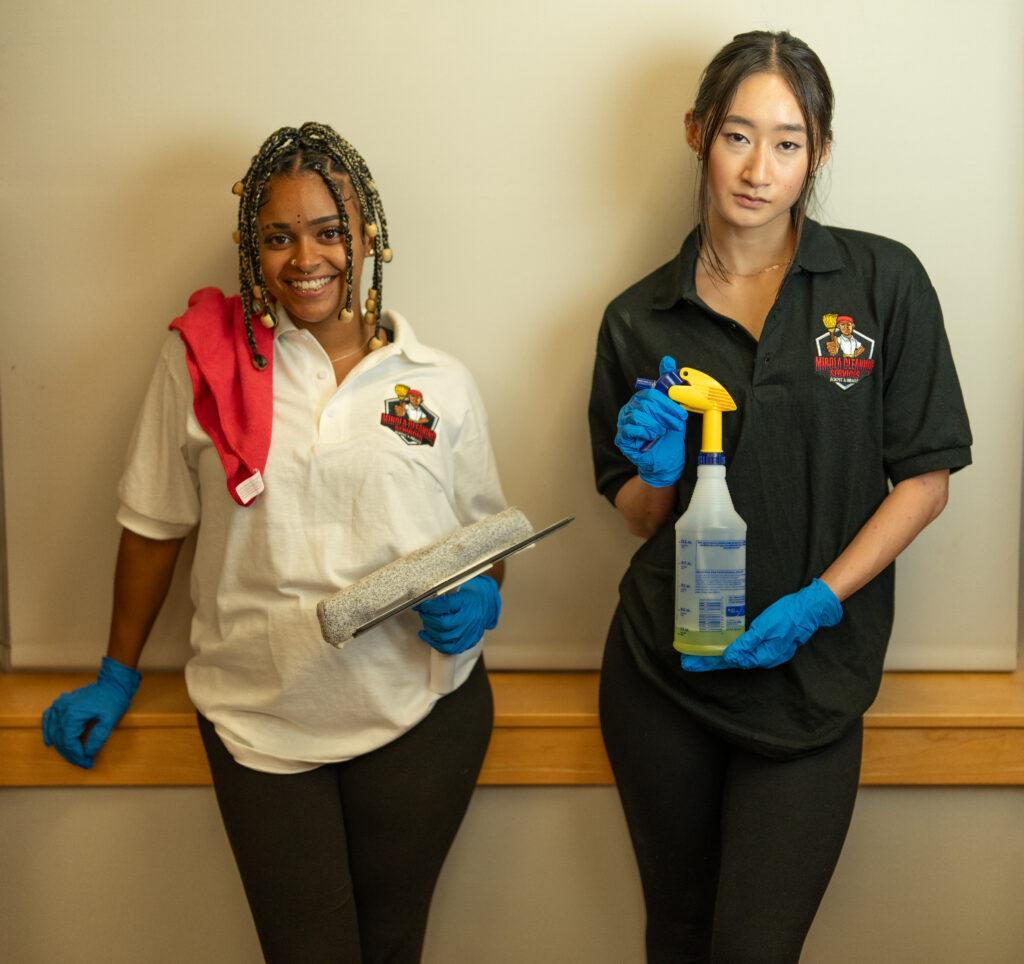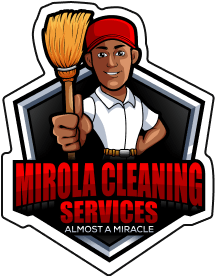Keeping a restaurant in New Jersey smelling fresh is, by far, the best thing any restaurant owner can think of. A bad odor signals a deeper issue that affects customer experience, reviews, and revenue. In a competitive dining scene, guests judge more than taste; they judge atmosphere. Studies show that unpleasant smells can drive diners away faster than poor service, making odor control a vital part of restaurant management. In this article, we will dicuss the Top Causes of Restaurant Odors and How New Jersey Cleaning Experts at Mirola Eliminate Them.
At Mirola Cleaning Services, we specialise in restaurant deep-cleaning across New Jersey, addressing the hidden odor sources that most teams overlook—like grease-filled vents, clogged drains, and moisture-soaked upholstery. Our goal is simple: restore freshness, improve air quality, and let you focus on what matters most—serving great food and creating memorable dining experiences.

Why odors matter
- Studies show unwanted smells in restaurants lead to negative impressions, reduced return visits, and public complaints (Biozone Scientific). In one survey, over 80% of diners said they associate restaurant odor with poor hygiene, even when the food is good. That perception directly affects customer trust and repeat business.
- In a competitive state restaurant market like New Jersey, this becomes a major cost. With thousands of dining options across the state, guests won’t hesitate to switch to a cleaner, fresher venue after one bad experience. Odor issues also hurt online reputation as negative reviews about smell can stay visible for months and deter new customers.
- These smells often come from areas diners don’t see, but feel. Odors trapped in air ducts, floor drains, or furniture fabrics can linger and spread quietly, creating discomfort even in spotless dining rooms. Addressing these hidden sources is what separates surface cleaning from true professional deep-cleaning, something the New Jersey cleaning experts at Mirola are known for.
1. Grease and oil buildup in the kitchen / ventilation
One of the top odor sources: grease that accumulates in kitchen hoods, exhaust ducts, walls, and ceilings. (ResTech Oil Management)
Why it happens
- Daily cooking produces vapours, fats, and oils that settle on surfaces.
- Over time, they trap odor-causing compounds. (Industrial Odor Control)
- If the exhaust system is clogged or poorly maintained, smells linger and spread. (GreenDuctors)
How Mirola handles it
- Deep-clean of hoods, filters, ducts, and fans.
- Degreasing of walls/ceilings in the kitchen back-of-house.
- Regular scheduled maintenance to prevent re-accumulation.
- Vent inspection and air-flow check to ensure odors don’t migrate into dining areas.
2. Drain, grease trap, and sewer gases
Another major culprit: foul smells from drains, grease traps, or plumbing lines. (Inlet Mechanical)
Why it happens
- Grease traps collect fats, oils, and food particles. As they decompose, bacteria produce hydrogen sulfide and other gases — the “rotten egg” smell. (Inlet Mechanical)
- If floor drains dry out (trap loses water) or plumbing vents clog, sewer gas escapes. (Zoom Drain)
- Blocked or slow drains let smells circulate.
How Mirola handles it
- Inspection of drain lines and grease traps.
- Scheduled cleaning and grease trap pumping.
- Treatment of plumbing vents and floor drains to maintain water seals.
- Odor‐neutralising treatments are applied after cleaning.
- Documentation to assist with health-code compliance.
3. Trash, food waste, and exterior waste areas
Trash bins, dumpsters, and waste zones are often overlooked but they have high odor risk. (Sparkling Bins)
Why it happens
- Decaying food, moisture, and bacteria build up inside bins and dumpsters.
- Warm temperatures (common in New Jersey summers) accelerate decomposition and smell.
- If these smells travel into dining areas, they damage the guest experience.
How Mirola handles it
- Cleaning and sanitising indoor and outdoor waste receptacles.
- Regular removal schedule and inspection of dumpster-area drains.
- Odour control treatments at the bin location to prevent cross-contamination.
- Staff training on waste disposal practices to ensure ongoing control.
4. Soft surfaces, upholstery, and dining area absorption
Odors don’t only live in the kitchen; they often hide in carpets, chairs, curtains, and upholstery. (NOVA Commercial Hood Cleaning)
Why it happens
- These materials absorb cooking smells, grease vapours, and food residues.
- Over time, the smell becomes embedded and hard to remove with surface cleaning.
How Mirola handles it
- Steam-cleaning carpets, upholstery, and curtains.
- Degreasing chairs/booths in dining areas, especially in New Jersey’s humid environment.
- A regular schedule to prevent odor absorption from the start.
- Sensory check (smell test) post-clean to confirm freshness.
FAQ
Q: How often should I schedule deep cleaning to keep odors away?
A: For a busy restaurant in New Jersey, aim for:
- Exhaust/hood system: at least every 3-6 months, depending on volume.
- Grease trap/ drains: monthly inspection and quarterly deep clean.
- Dining area soft surfaces: twice a year or more if high traffic.
- Waste receptacles: weekly cleaning and immediate treatment if a smell arises.
Q: Will treating only the kitchen remove dining-area odors?
A: Not always. Odors travel through the air and surfaces. If dining furniture or carpets have absorbed smells, you’ll need both back-of-house and front-of-house cleaning.
Q: Are air fresheners enough?
A: No. Masking odors doesn’t fix the source. According to research, unresolved odors create a negative experience even if you add scent. Professional cleaning targets the root.
Q: Do I need to worry about compliance or health code issues?
A: Yes. Persistent foul odors may lead to violations. Up-to-date cleaning helps meet health and fire safety standards.
A local story from New Jersey
One of our clients in central New Jersey had recurring complaints about a “greasy smell” in the dining area, even though the kitchen was cleaned daily. After inspection by Mirola:
- We found heavy grease along the rooftop ductwork above the hood.
- The grease trap hadn’t been pumped in 9 months and was emitting gases.
- The upholstered banquettes had absorbed odours and needed steam cleaning.
We executed a coordinated plan: hood and duct deep clean, grease trap pumping, upholstery cleaning, and ventilation check. Within a week, customer feedback improved—no more odor complaints and a higher return guest rate.
Why choose Mirola Cleaning Services in New Jersey
- We specialise in restaurant environments and understand New Jersey regulations and humidity-related challenges.
- We use professional-grade equipment and certified cleaning processes to remove—not mask—odors.
- We provide full documentation for your inspections and audits.
- We work around your schedule (before/after service) to minimise disruption.
- We partner with you for an ongoing plan, not a one-off.
Conclusion
Unpleasant odors in your restaurant risk reputation, return business, and compliance. By identifying key odor sources like grease buildup, plumbing/drains, waste zones, and absorbed surfaces, and by engaging a specialized cleaning partner like Mirola in New Jersey, you protect your brand and deliver a better dining experience.
Ready to make your restaurant smell fresh and inviting again?
